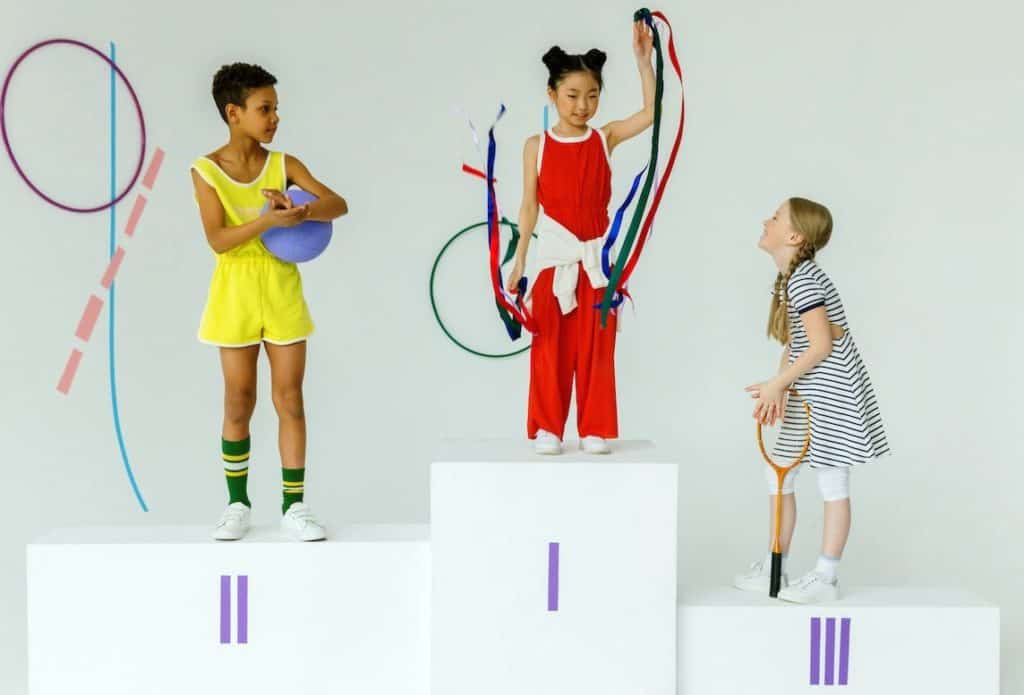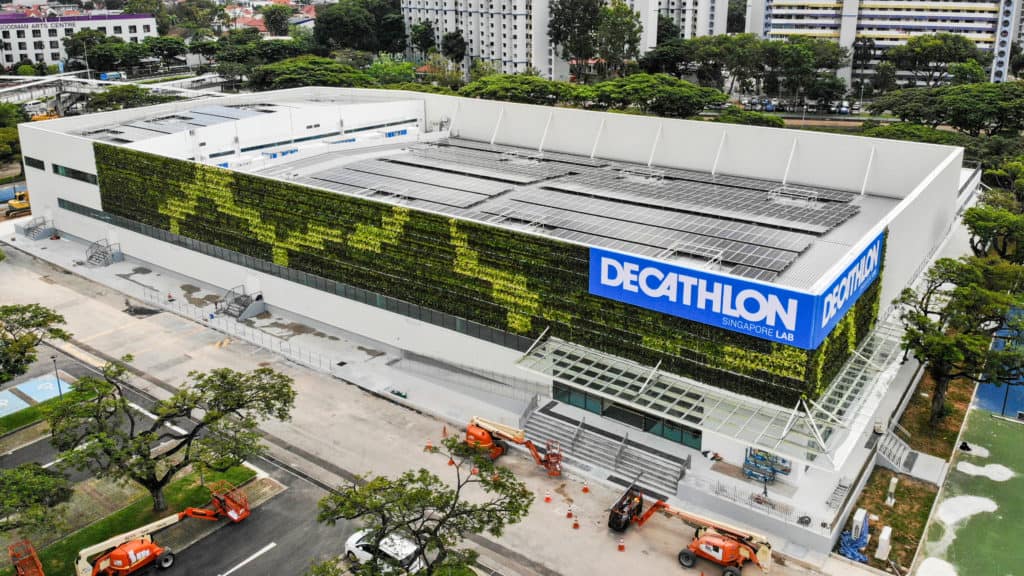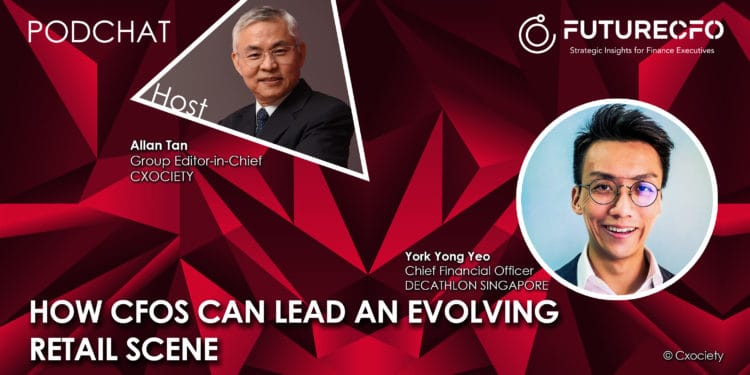The face of retail has been changing since the start of digital transformation. Many traditional retailers have witnessed the rise of Amazon to dominate retailing – changing how consumers engage and make purchases.
Alibaba took it to a celebrity affair with their annual Singles Day event. But it took the pandemic with its mobile and social restrictions to get more retailers to finally start to changes in how they engage customers.
What is certain at this moment is that the evolution of retailing will continue.
For decades shopping in Singapore was characterised by hopping from store to store whether looking for bargains, checking out the latest, or just simply enjoying the social aspects of the experience.
The toughest period
Then the pandemic hit the city and like many others, the retail sector plunged over 40%, at one point, as the country launched its “circuit breaker” measures between 8 May 2021 to 29 March 2022.
“The years between 2019 and 2021 were the toughest for retailers because companies need to find ways to secure the cash flow necessary to continue their operations,” remembered York Yong Yeo, chief financial officer of Decathlon Singapore.
Yeo recalled that the e-commerce business model accelerated following the lockdowns and retail store closures.
The business model shift
Yeo recalled that prior to the pandemic, Decathlon was already tinkering with e-commerce. In 2017, e-commerce made up 5% of retail sales in Singapore, with Decathlon reporting about 4% of business coming from online sales.
Of particular interest was how to ensure that the e-commerce business model would become profitable.
“For Decathlon, it was also critical need to keep at the company by accelerating even faster our e-commerce adoption as part of the strategic business continuity plans,” he added.

“At Decathlon, the team understood the importance of e-commerce and connecting with our users through live streaming activities, which we began ramping up during this time and allowed the brand to continue to closely connect with the customers despite the physical distance.”
York Yeong Yeo
By the end of 2021, Decathlon Singapore saw 25% of sales come through e-commerce. By then 60% of customers made their purchases through a mobile device instead of a computer.
Navigating the shift to normalcy
In 2022, with travel and COVID-19 restrictions easing, Decathlon observed a very strong recovery in traffic at different stores. Adjustments had to be made including the allocation of manpower.
“Finance plays a crucial role in supporting the business unit to help them make their forecast of sales expectation and to better prepare the necessary resource needed for these changing needs,” said Yeo.
He opined that the ability of a retailer to achieve and sustain its performance regardless of internal or external changes is vital in setting up the success of any business.
“In my view, this is really what happened across these five years and how the retail scene has developed within these past 5 years,” he added.
The on-going mission

Yeo noted that Decathlon’s mission is to sustainably make the pleasures and benefits of sports accessible to the many.
“From the finance perspective, one key internal challenge lies in ensuring that the business model works and creates the most value for all our stakeholders. This is done by finding the right balance between our strategies and the value we create for our stakeholders,” explained Yeo.
For him, stakeholders meant three separate groups that are co-dependent on each other.
The first is the users of its products. To them, the goal is to provide the best value-for-money sporting products with quality. The second group are Decathlon teammates (employees).
“We aim to create value to having a desirable working environment and culture that they can develop themselves in and take pleasure and confidence in their work,” he added.
The third is to create value for shareholders by delivering healthy financial performances.
“The whole idea is to find the sweet spot of these three values that we are generating and how we can maximise the overall value altogether that is generated by Decathlon,” said Yeo.
Staying focused despite an evolving CFO role
Asked how the CFO can stay focused despite the evolving expectations and demands, Yeo conceded that without a mission, it is easy to get distracted by many topics and projects occurring.
“At Decathlon, our mission is to be useful to the people and the planet. And we achieve that by making the pleasures and benefits of sports accessible to many,” he added.
He further believed in the importance of involving all employees in defining a two-year project.
“At Decathlon Singapore, our two-year project is co-written by our teammates and centres around and cascaded down to our team mission. And in my case, in finance and personal mission which forms part of our individual KPI for the year,” he continued.
He is also a proponent of bringing colleagues to co-lead projects. “This motivates teammates to take on additional roles and tasks that they are passionate about because they feel the sense of responsibility in their ownership for having this work and being able to take part in and co-write the project,” he added.
For him, this makes it easy to stay focused.
Mapping out the road ahead

Yeo lists three priorities for finance in the coming years. The first is to enjoin the organisation towards taking care of the planet by practising environmental sustainability. For finance, incorporating sustainability reporting to guide the company.
For Yeo, his second priority, that of transforming finance, is important to help the company transform. He believed in finance operational excellence. He explained, for example, that automating finance processes can reduce the finance-expense ratio, which in turn will mean that the finance team is more efficient, providing quality, and operational excellence.
“Finance is a value accelerator. We want to guarantee available and accurate real-time data for business decision-making by using the best visualisation or analytics competency to generate these data insights and co-drive the value creation of each of these business models,” he elaborated.
“These also involve the finance teams being able to develop and disseminate such knowledge and understanding of economic or financial stakes to all the teammates and leaders within their organisation or in the team so that it improves and enhances everyone’s business decision-making competency.”
York Yong Yeo
The third priority is to prioritise the exploration of new business models within retail. This will enable companies to become more resilient in this changing market.
“Retailers can no longer just bank on the tried and tested business models considering how fast things change and how quickly new entrants can emerge to disrupt this market and take over the market share,” he concluded.
Click on the PodChat player to listen to Yeo describe the changes impacting the retail scene in Singapore and some of the unique strategies Decathlon has taken in response.
- How has retailing changed over the past five years as viewed from the perspective of the CFO?
- Among the many challenges, both internal and external, which have presented the most challenges to your role as CFO?
- In which areas have you seen the greatest opportunities for Decathlon (specifically) and the retail sector (generally)?
- The role and responsibilities placed on the CFO continue to expand. How do you stay focused and not get distracted by the priorities demanding your attention?
- Looking ahead, what are the priorities of the CFO of a retailer over the next 1-3 years?




